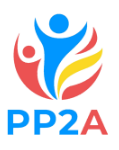Introducing and Supporting Rengginang Cassava Micro Small Entrepreneurs "Bu Tarni" in Pagerukir Village: NIB and Halal Certification
Keywords:
accompaniment, Introduction, NIB Halal Certification, MSMEsAbstract
The number of micro, small, and medium-sized enterprises (MSMEs) is skyrocketing. Small and medium-sized enterprises (SMEs) are crucial in bolstering Indonesia's economic system since they provide employment and higher per capita income through innovation. The Indonesian government has created a system called NIB (Business Identification Number) to streamline the registration and licensing of firms. Micro and small business owners still lack the information necessary to apply for and obtain halal permits and certification, but they are still required to obtain a business license. Therefore, it is important to raise awareness about the necessity of obtaining a business license and establish methods for producing business permits that will help micro and small business actors in the hamlet of Pagerukir comprehend and understand how to obtain a business license online and offline. In August of 2023, actions will be taken without intermediaries. The study's overarching goal is to educate people in Pagerukir Village on how halal certification can boost product quality, sales, consumer interest, and confidence in small and medium-sized enterprise (MSME) goods. This community service project will be implemented through outreach and guidance for obtaining free halal certification through SiHalal. The outcomes of this community-based lecture include (1) an increased awareness among MSMEs of the value of having a registration number and halal certification, (2) an improved understanding among MSMEs of the processes involved in obtaining such numbers and certifications, and (3) the issuance of registration numbers and certifications to MSMEs in the village of Pagerukir. As a result, having a business registration number and a halal label should raise consumer interest in making purchases and boost consumer confidence. Pagerukir Village, Sampung District, Ponorogo Regency, hopes to boost product sales and community welfare.

 Universitas Muhammadiyah Ponorogo, Indonesia
Universitas Muhammadiyah Ponorogo, Indonesia


















